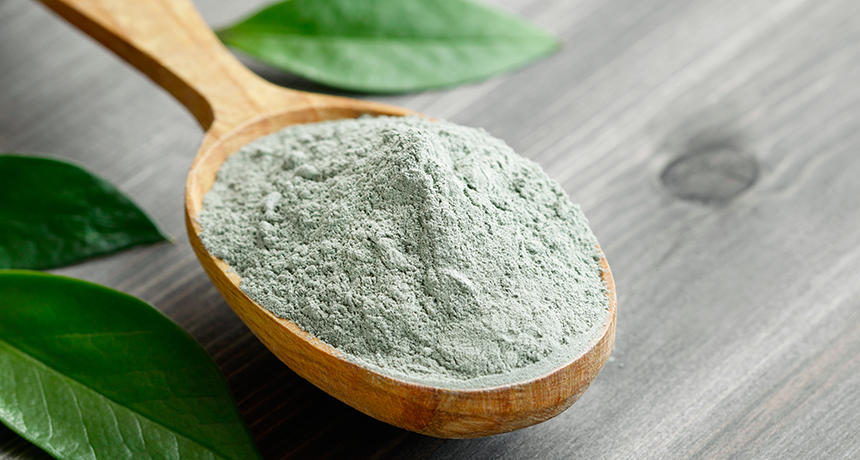Could eating clay help manage weight?
These fine dirt particles work as well as a leading drug at slowing weight gain — in rats, anyway

Someday, swallowing clay might keep you from absorbing much of the fat in your diet. But don't try it just yet.
Edalin/iStockphoto
Dry clay doesn’t sound very appetizing. But new research shows there might be a good reason to eat it. Clay can soak up fat from the gut — at least in rats. If it works the same way in people, it could stop our bodies from absorbing fat from our foods and prevent our waistlines from expanding.
Clay is a type of soil defined mostly by its size and shape. It’s made of very fine grains of rock or minerals. Those grains are so tiny that they fit together tightly, leaving little or no room for water to filter through.
In a new study, rats that ate pellets of clay gained less weight on a high-fat diet. In fact, the clay slowed their weight gain just as well as did a leading weight-loss drug.
Pharmacist Tahnee Dening did the research at the University of South Australia in Adelaide. She was testing whether clay could help carry medicines to the small intestine. But it wasn’t much of a success because the clay was absorbing the drug along the way. That got her thinking about what else clay might soak up. How about fat?
To find out, she did a few experiments.
She started with what’s in your small intestine. The small intestine sits between the stomach and the large intestine. Here, most of what you eat gets soaked in juices, broken down and absorbed by the body. Dening added coconut oil — a type of fat — into a liquid that was just like intestinal juices. Then she mixed in clay.
“These clays were able to soak up twice their weight in fat, which is incredible!” Dening says.
To see if the same thing might happen in the body, her team fed the clay to some rats for two weeks.
The researchers looked at four groups of six rats each. Two groups ate a high-fat diet, along with pellets made from different types of clay. Another group got the high-fat food and a weight-loss drug, but no clay. The final group ate the high-fat diet but had no treatments of any kind. These untreated animals are known as a control group.
At the end of two weeks, Dening and her colleagues weighed the animals. Rats that ate clay had gained as little weight as the rats that took a weight-loss drug. Meanwhile, rats in the control group gained more weight than the rats in the other groups.
The researchers shared their findings December 5, 2018, in the journal Pharmaceutical Research.
Dirt versus drugs
The weight-loss drug that the Australian team used can create unpleasant symptoms. Since it stops the gut from digesting fat, the undigested fat can build up. In people, this can lead to diarrhea and flatulence. In fact, many people stop taking the medicine because they can’t stand these side effects.
Dening now thinks that if people took clay at the same time, it might knock out some of the drug’s nasty side effects. Afterward, the clay should pass out of the body in the patient’s poop. The next step “is to give the rats different portions of different types of clay, to see which works best,” Dening says. “We also have to test it on larger mammals. Either on dogs or pigs. We should make sure it’s really safe before we test it on people.”
Donna Ryan agrees that doctors will need to make sure clay is safe before using it as a medicine. Ryan is a retired professor at Pennington Biomedical Research Center in Baton Rouge, La. Now president of the World Obesity Federation, she has studied obesity for 30 years.
Fat absorbs lots of nutrients, Ryan says. These include vitamins A, D, E and K, and the mineral iron. So she’s concerned that clay might soak up — and eliminate — those nutrients too. “The problem is that the clay can tie up iron and cause deficiency,” Ryan says. And that would be bad, she says. “We need iron to create blood cells. It also forms an important part of our muscle cells.”
Melanie Jay is a doctor at New York University’s Langone Medical Center in New York City. She helps treat people with obesity. And fat in people’s diets isn’t the only culprit, she notes. Eating lots of sugar also can contribute to obesity, she says, and “Clay does not soak up sugar.” If we’re looking for a new way to help people manage their weight, she says, “we have a very long way to go before we are giving people clay.”







